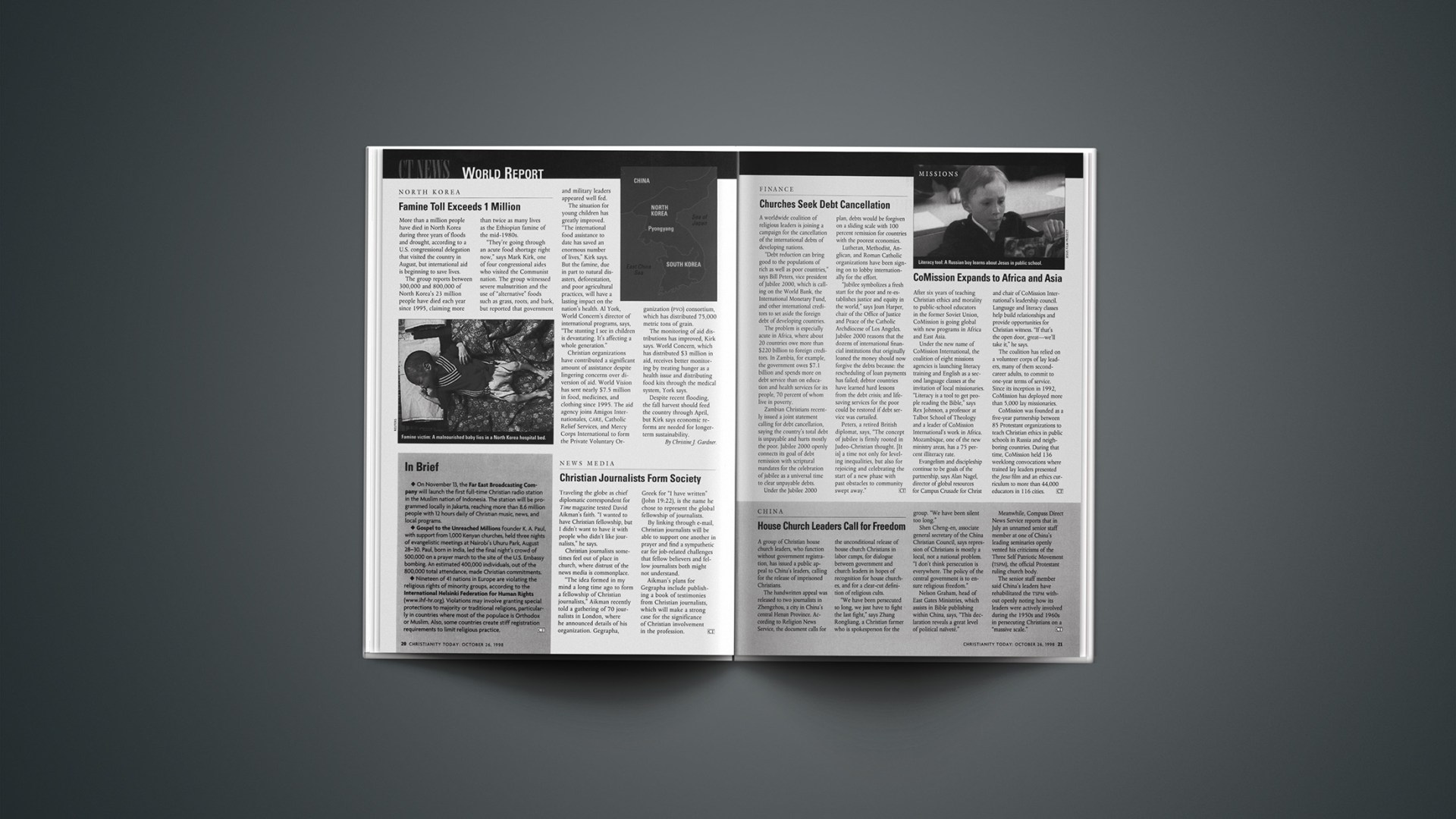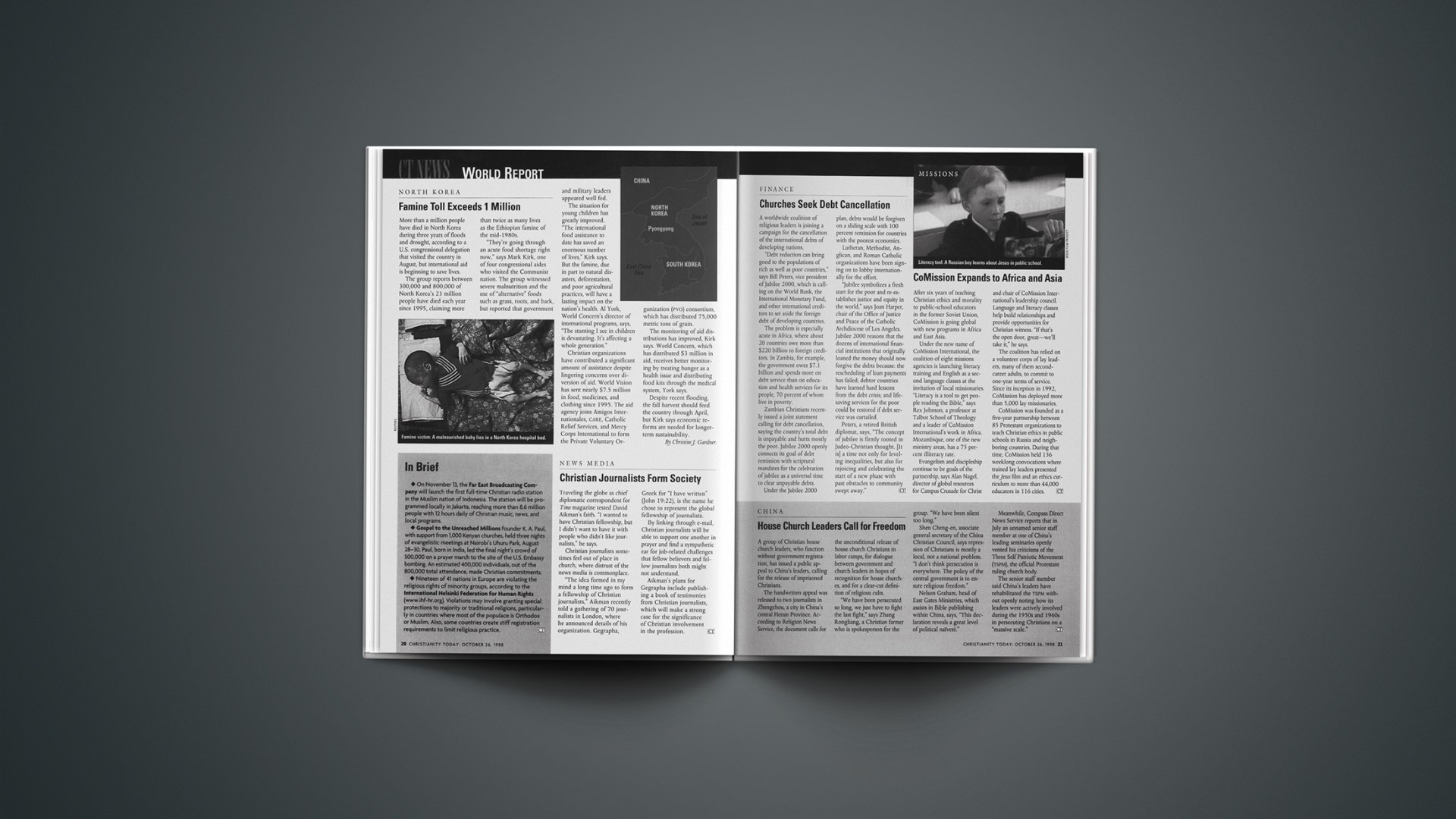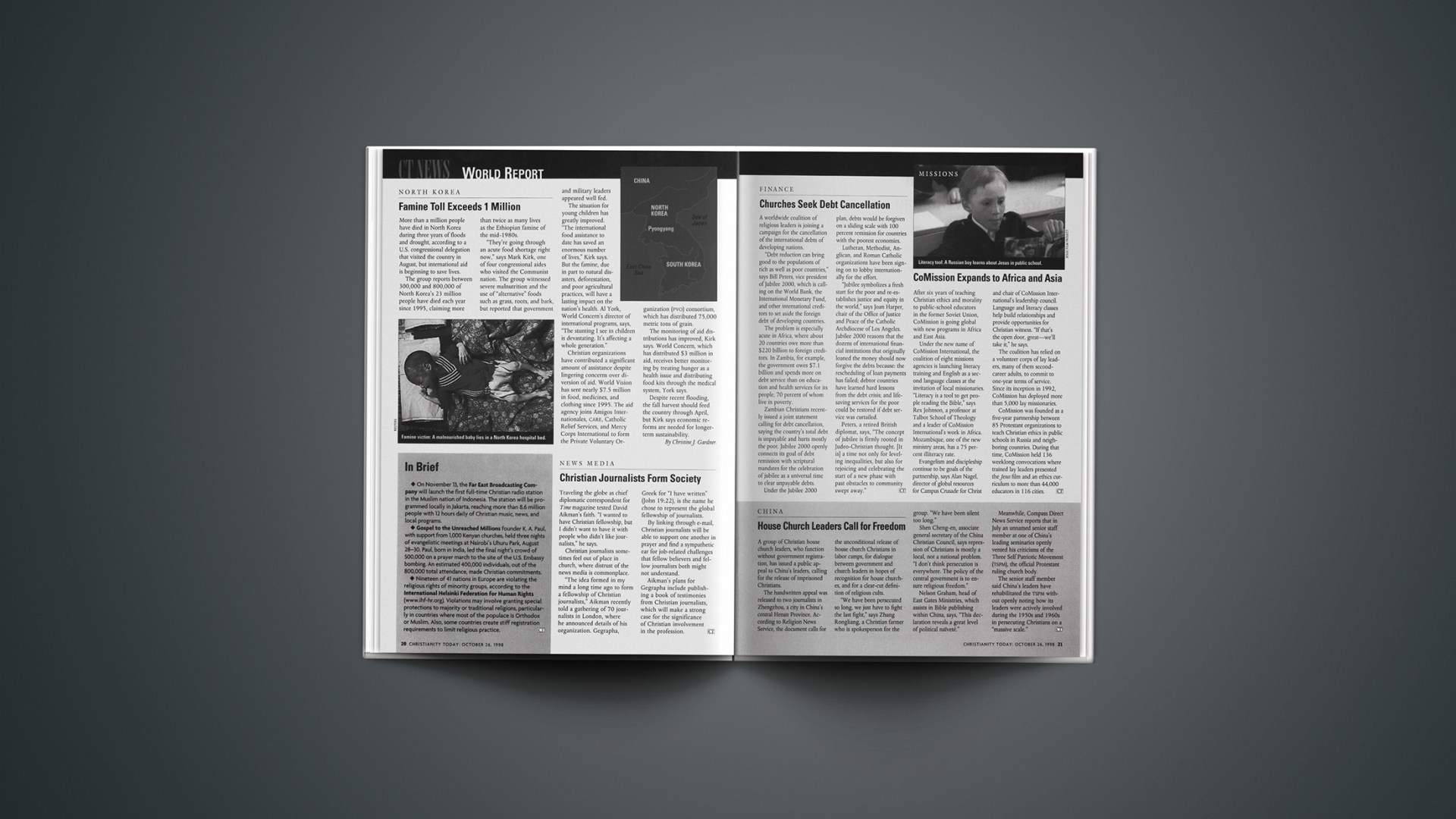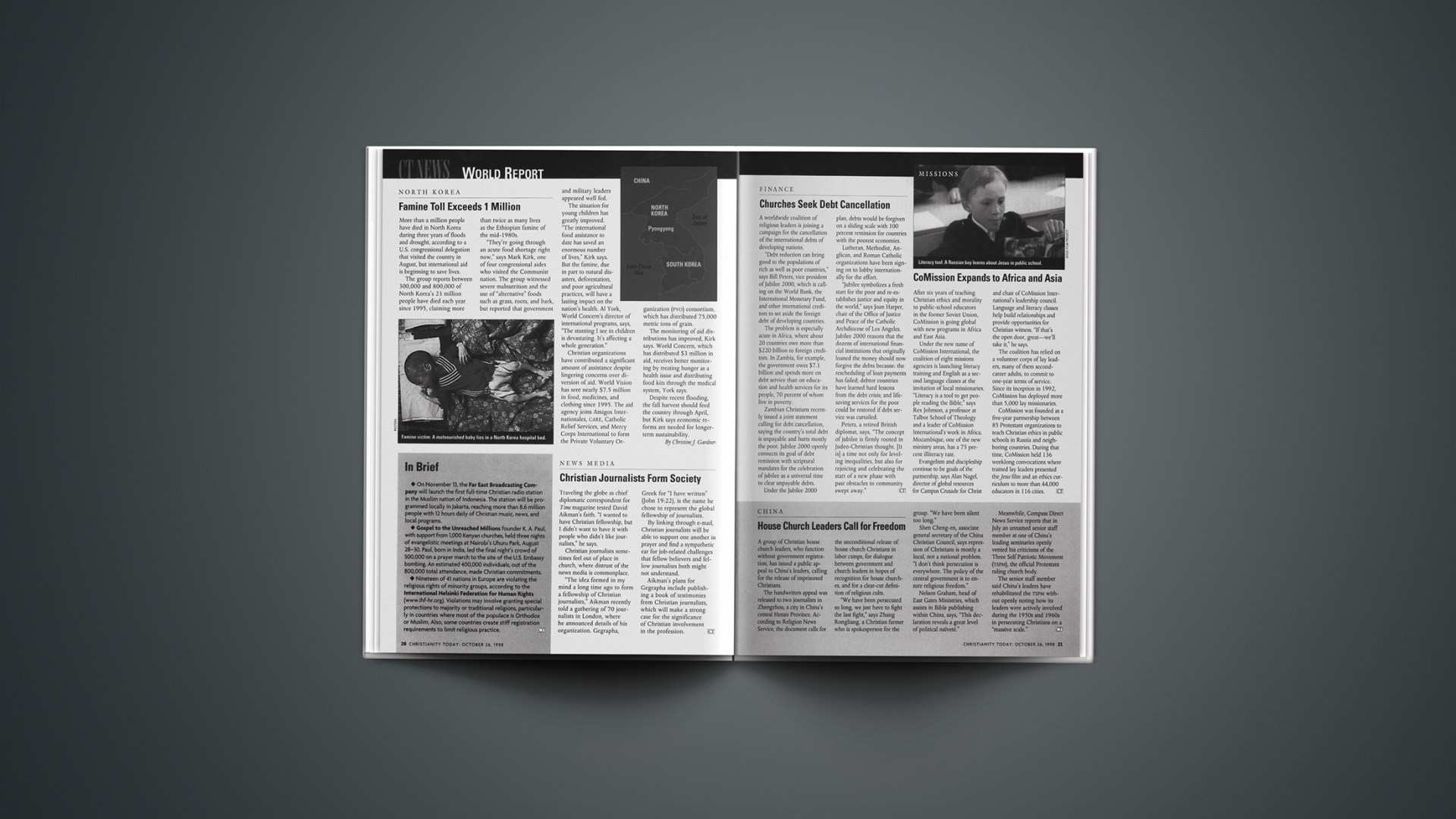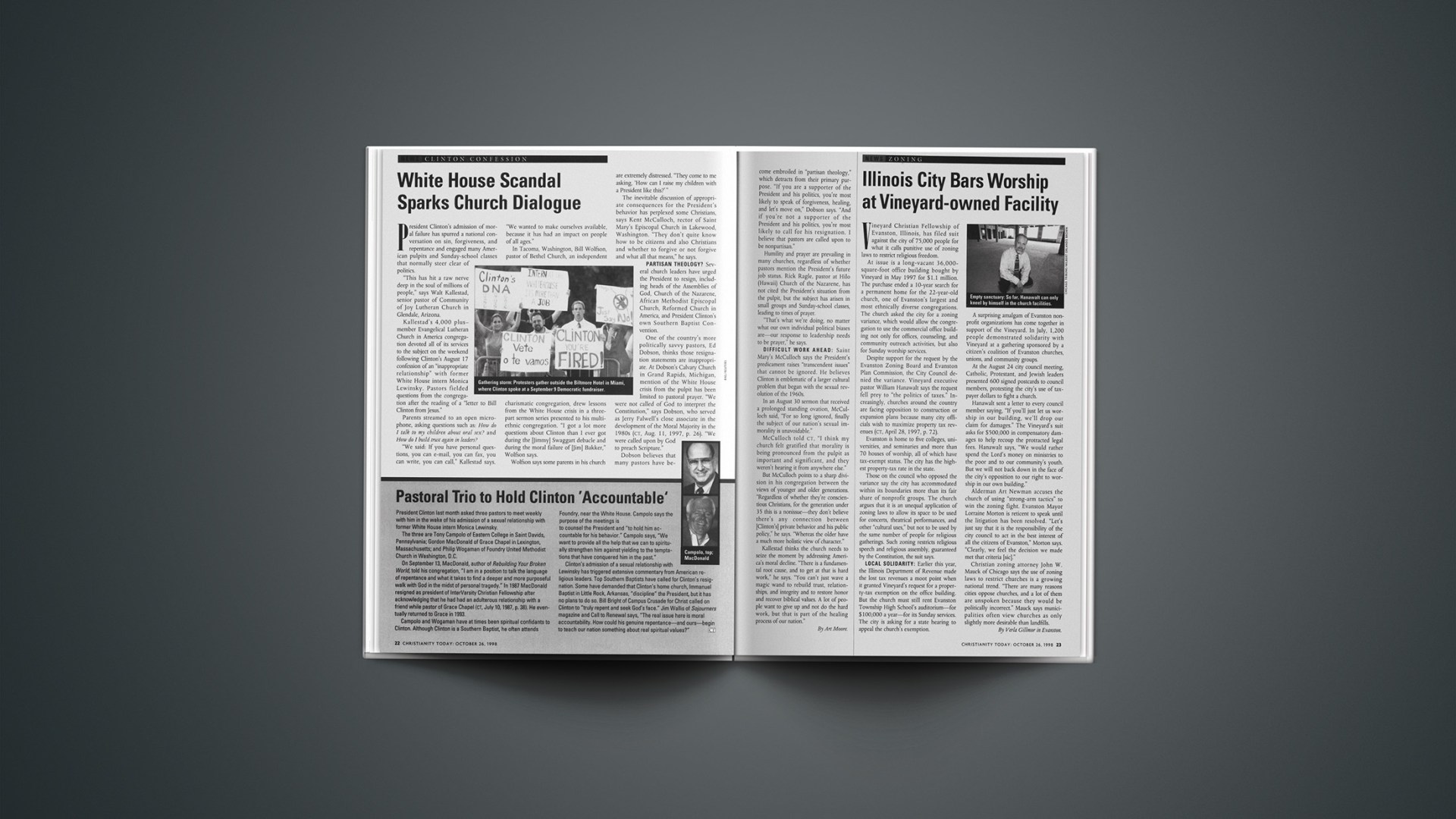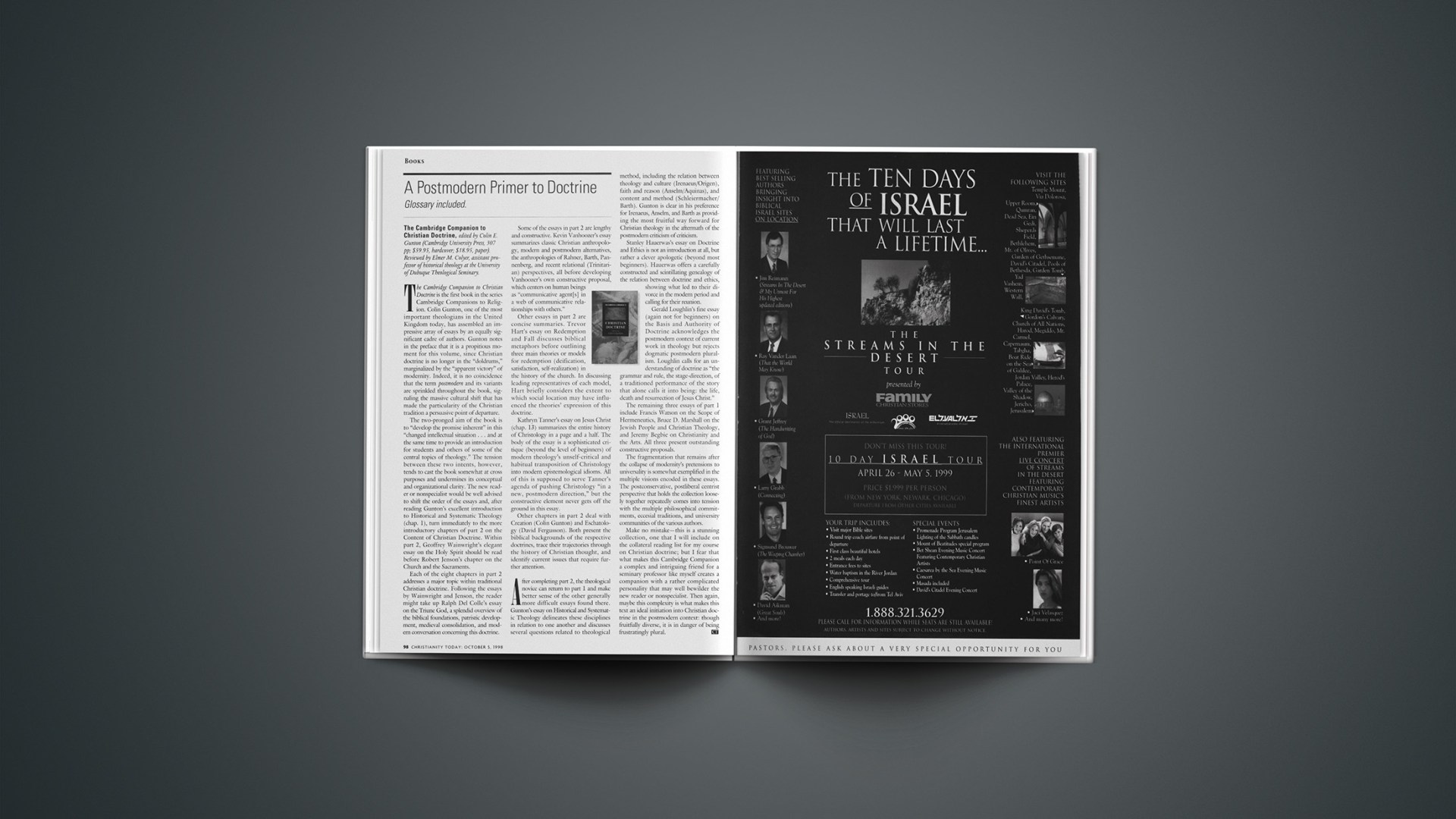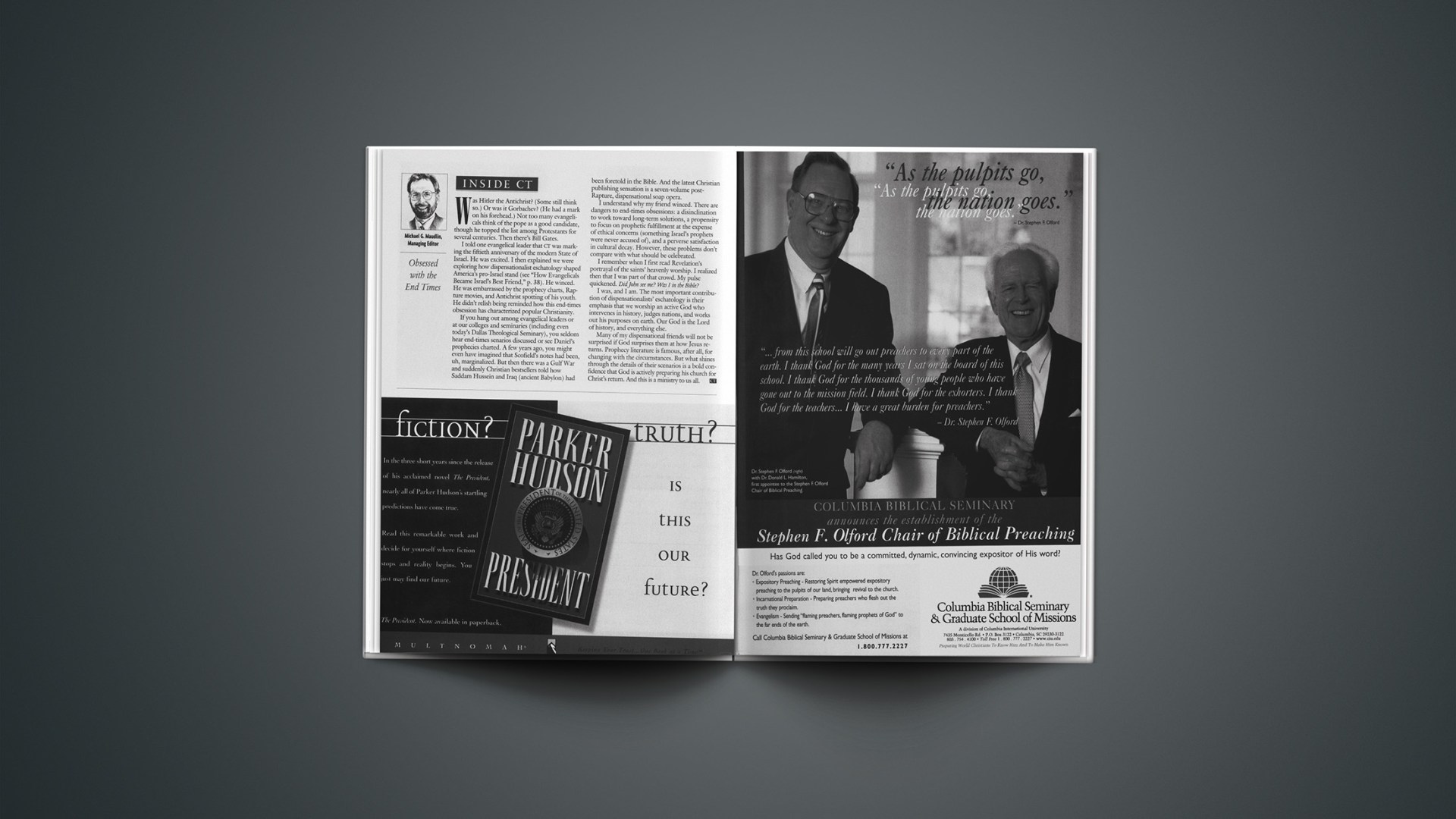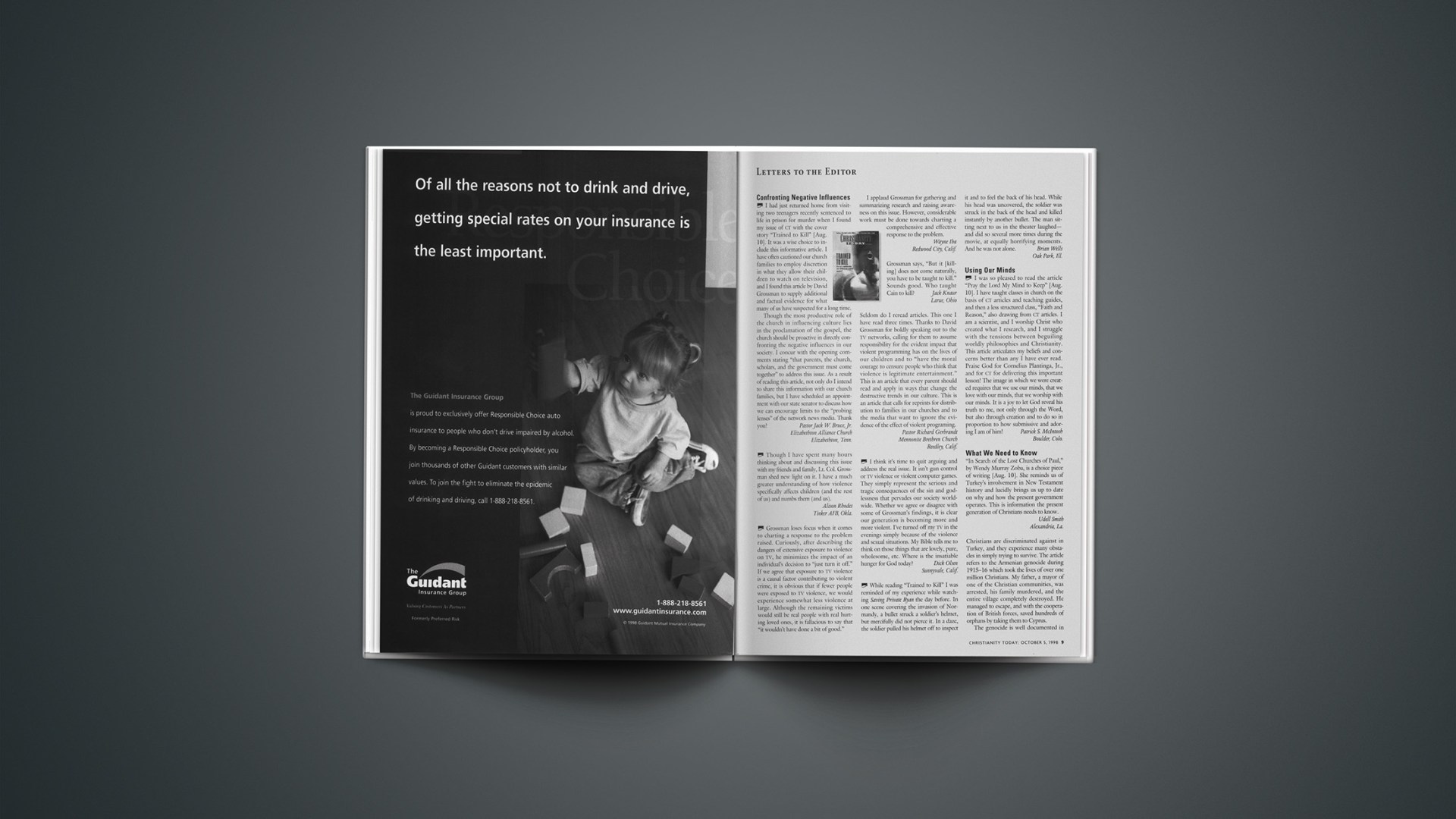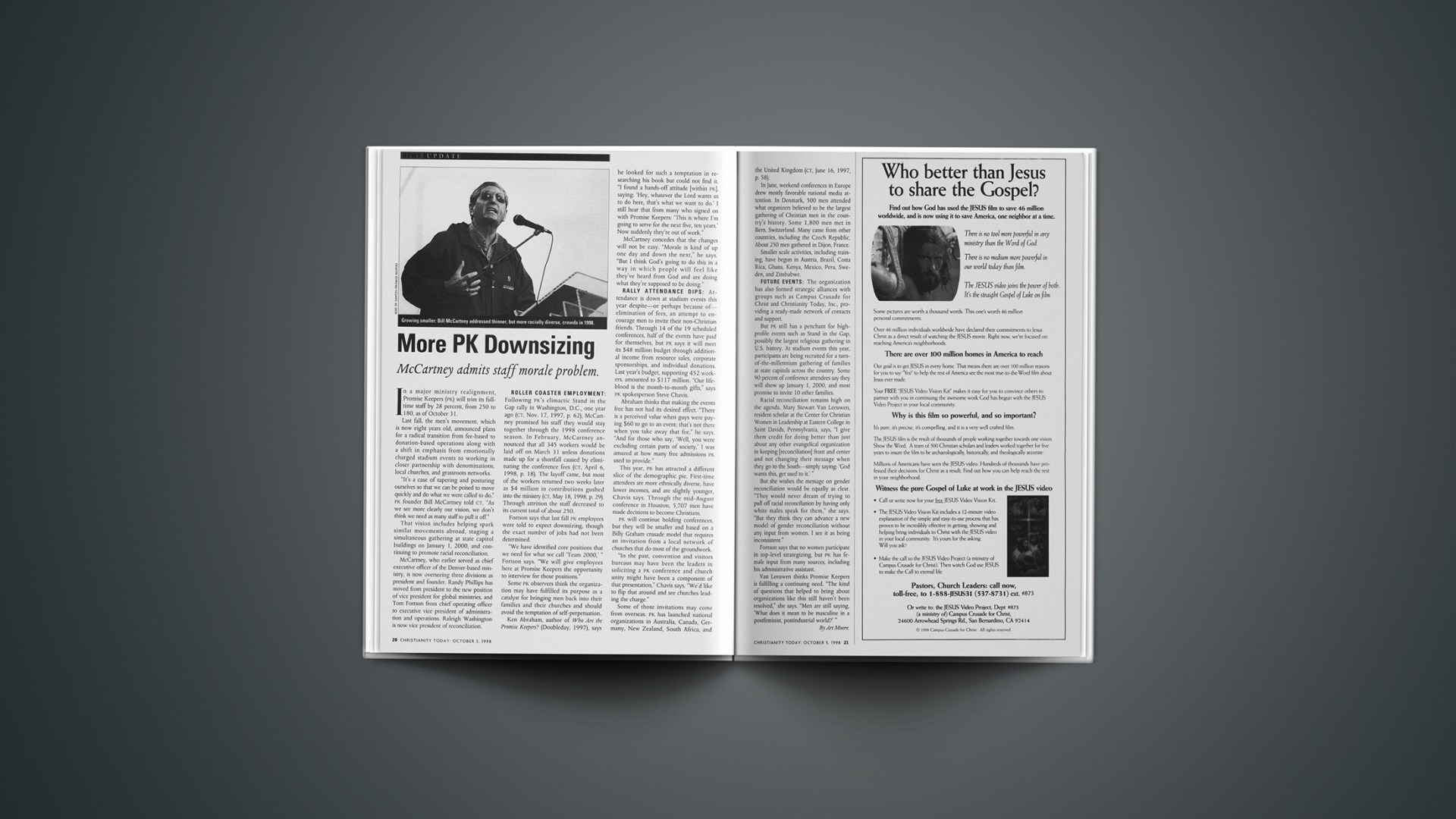- On November 13, the Far East Broadcasting Company will launch the first full-time Christian radio station in the Muslim nation of Indonesia. The station will be programmed locally in Jakarta, reaching more than 8.6 million people with 12 hours daily of Christian music, news, and local programs.
- Gospel to the Unreached Millions founder K. A. Paul, with support from 1,000 Kenyan churches, held three nights of evangelistic meetings at Nairobi’s Uhur—Park, August 28-30. Paul, born in India, led the final night’s crowd of 500,000 on a prayer march to the site of the U.S. Embassy bombing. An estimated 400,000 individuals, out of the 800,000 total attendance, made Christian commitments.
- Nineteen of 41 nations in Europe are violating the religious rights of minority groups, according to the International Helsinki Federation for Human Rights (www.ihf-hr.org). Violations may involve granting special protections to majority or traditional religions, particularly in countries where most of the populace is Orthodox or Muslim. Also, some countries create stiff registration requirements to limit religious practice.
Copyright © 1998 Christianity Today. Click for reprint information.

